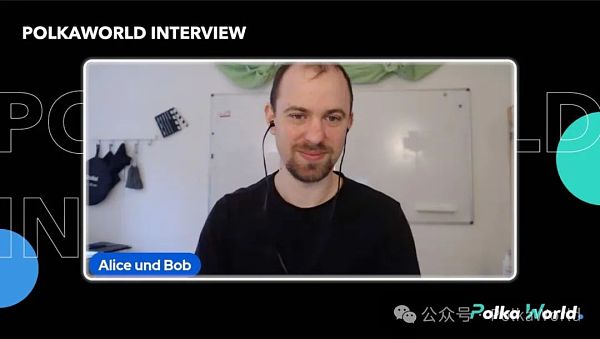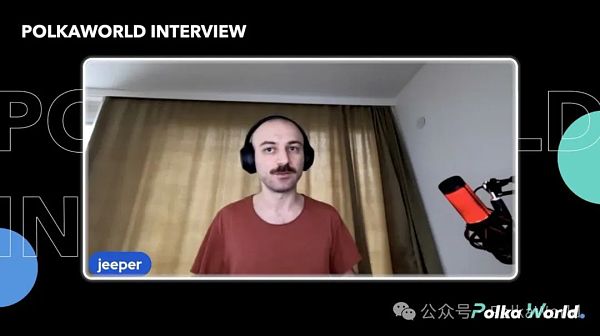Author: PolkaWorld
Polkadot's governance transitioned to the OpenGov model on June 15, 2023. This new The introduction of the model increases the frequency of network governance, increases the activities of the treasury, and attracts more holders to spontaneously participate in the governance of the network, which also further decentralizes Polkadot's governance.
In the 50th exclusive interview of PolkaWorld, we invited OpenGov.Watch
who recently received the Web3 Foundation’s decentralized future funding strong>, this is a project to help guide the community to better participate in governance. Two of their co-founders, Enenkel & jeeper, join us to discuss:
OpenGov democracy and challenges
Share research feedback on OpenGov
Should the expenditure of funds from the national treasury be conservative or open?
What is the on-chain governance of other ecosystems like?
Opinions on the rejection of the DOTA proposal
Keep reading to check out the topics that interest you!
Moderator: Kristen, head of ecological research at PolkaWorld
Guest: OpenGov.Watch United Founders Tommi Enenkel & jeeper
Kristen: We noticed that the OpenGov.Watch project recently received funding from the Decentralized Future. What sparked your interest in OpenGov, and what has the OpenGov.Watch project improved?
Tommi: OpenGov is groundbreaking. We are building Web3 as a global community that not only revolutionizes the Internet, but also expands the possibilities of human society. OpenGov is a mechanism that allows many people to come together, build architecture, and agree on something. For example, Polkadot’s consensus mechanism brings together many different parallel chains. OpenGov brings people together to resolve conflicts in the system and build a system that serves the interests of the majority.
OpenGov is very advanced and allows us to work in complex environments. However, many participants do not understand "politics" but know more about technology and markets, so sometimes making wrong decisions in governance is inevitable. Our goal is to discover how to optimize OpenGov's approach, including its philosophy, processes and what works. By actively monitoring OpenGov activity and promoting leadership formation, we aim to make it easier for people to get involved and prevent some problems.
jeeper: I have a background in political science and political sociology. I personally like Polkadot very much because it has the most advanced governance system in the Web3 ecosystem. That's one of the reasons I like it. On the other hand, even if you don’t have a lot of money, you can build an ecosystem and make your voice heard. As long as your point of view is valid, the community will listen. This is the most important thing about OpenGov. Through OpenWatch, we can let more people see those "weak" voices.
Kristen: Do you think OpenGov can bring about real democracy?
jeeper: Gavin once mentioned that currently Polkadot is not deliberately trying to achieve democracy. But in my opinion, we have achieved democracy because the weak voices can be seen. We do not pursue democracy in the literal sense of one person, one vote, but more people participating in ecological governance.

Tommi - Twitter ID: Alice and Bob
Tommi: A political system usually combines multiple forces and ideasincluding democratic elements, political elements, the power of currency holders, and technological factors. People who build protocols also have a certain amount of influence, people with good ideas also have power, and it’s difficult to simply describe what is democratic and what is not. This is a very complex topic.
Kristen: I noticed that you have conducted some research on OpenGov in the community. What feedback have you received?
Tommi: The first feedback we received was to add functionality that enables users who stake in the nominator pool to participate in OpenGov Because the nominator pool does not require users to have many DOTs. Currently, individual staking requires at least 600 DOTs, which is a threshold for many people. This requirement is very reasonable. Another problem is that it takes too long for funds to arrive after a proposal is passed, which creates difficulties for projects that rely on these funds.
Kristen: How many people actually vote in OpenGov? I've seen several proposals for rewards for participating in governance, but nothing has been agreed upon yet. Any ideas how to get more people involved?
jeeper: Participating in voting accounted for 11.12% of the total DOT. When it comes to motivating people to participate, I'm not a fan of simply giving rewards to voters. In the discussion about rewards, someone proposed that airdrops could be given to people who voted for a certain proposal from time to time. There are also traditional ways to increase participation, such as holding political elections where users can entrust their votes to representatives. This way representatives can represent everyone’s voice. Let people fully understand that their voices matter.

jeeper
Kristen: Are you more inclined to spend cautiously? Money from the treasury, or spending it more freely?
jeeper: My attitude is more complicated. A few months ago, I was an activist who believed in spending as much money as possible from the state treasury. But when it comes to large expenditures, I'm conservative. We should be more cautious about large and controversial expenditures like Polkadot Decoded.
Tommi: Jeeper and I have different opinions. I think one of the benefits of OpenGov is that different opinions can be fully discussed. I tend to spend money wisely and we can spend as much as we want on really good ideas, but I will be critical of a lot of them.
So I spend a lot of time thinking about everything, hoping to give everyone a comprehensive map. Let everyone clearly see what costs are needed from the perspective of the entire ecosystem. After this is clarified, everyone will have more confidence in the fees they apply for.
Kristen: How does Polkadot’s governance compare to other ecosystems? Do they have a similar on-chain governance system? Do they have a treasury like Polkadot? Are their voting and decision-making processes better?
Tommi: Each ecosystem is very different. But Polkadot still has the most advanced governance system in the Web3 ecosystem! I think Cosmos is an ecosystem with very complete on-chain governance development. Cardano currently does not have a governance system. Their treasury is managed by funds and will be changed to on-chain in the future. MakerDAO has a mature democratic governance structure and innovative subDao.
Many ecosystems are controversial, especially regarding the rights and responsibilities of validators and currency holders. For example, ecosystems like Cardano, Aptos, and Cosmos attract validators and give them voting rights. However, in my opinion, validators are more like service providers, while token holders play a more important role in maintaining network security. In comparison, Bitcoin's design is more reasonable. Because in the Bitcoin network, miners are responsible for the security of the entire network and have certain voting rights. For other ecosystems, although validators provide important services to the network, it is more reasonable for currency holders to have voting rights.
Kristen: Some time ago, DOTA inscription brought millions of online transactions to the Polkadot relay chain, but even if such a project applies to the national treasury, it faces challenges refused. What are your thoughts on the challenges of passing proposals in OpenGov?
jeeper: I personally support this proposal. I am surprised that the proposal has been opposed, the main reason may be that they are more active in Asian communities such as WeChat. In order to get your proposal approved, it’s important to stay active on different channels and build credibility.
Tommi: How you structure your proposal is also very important. When I first saw the DOTA proposal, my first reaction was doubt. But after careful consideration, I think they generate substantial revenue for the treasury and should be rewarded.
People usually scan proposals very quickly, so the title and first few paragraphs of the proposal are very important. You have to grab their attention right away and tailor the proposal by cutting in from different directions.
Kristen: Finally, can you share your plans for the next few months?
Tommi: We plan to start publishing reports regularly, including monthly governance reports and quarterly treasury reports, introducing what is happening in OpenGov and the main proposals passed , hot issues discussed, etc. We also publish discussions on development issues together, with a list of problems and a list of solutions. And in order to help developers find development directions, we will list a list of proposals for the directions required by the ecosystem, as well as a Bounty list, so that developers can focus on solving problems in specific areas.
 Alex
Alex
 Alex
Alex JinseFinance
JinseFinance JinseFinance
JinseFinance JinseFinance
JinseFinance JinseFinance
JinseFinance JinseFinance
JinseFinance JinseFinance
JinseFinance JinseFinance
JinseFinance Future
Future Cointelegraph
Cointelegraph